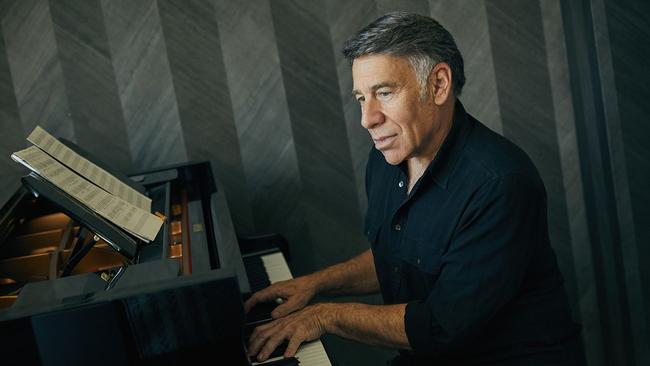Stephen Schwartz, writer/composer, 75: Q&A
He’s composed the music for everything from Godspell to Wicked. Stephen Schwartz lives and breathes musical theatre.

You got your first big break in 1971, aged 23, writing music and lyrics for the musical Godspell. It went on to become a huge box office hit – and still is. What was it like to be so successful, so young? It’s not a very popular topic to complain about success. But I certainly was not ready for it, and I didn’t handle it all that well. It’s just very confusing. People sort of start to treat you differently, and that feels weird and kind of fraudulent. It took me a while to get my equilibrium but I certainly would not have traded that experience.
How early on did you know you wanted to be making music for Broadway? When I was growing up [in Long Island, New York] we lived next door to a composer named George Kleinsinger. He was writing new material for a show and from time to time, we would go next door to visit and he would play us a song he was working on. I was about seven and every time he played I’d go over to the piano and try to pick out the tune. George said to my parents: “I think that Steve has some musical ability and maybe you should think about getting him a piano”. A couple of years later my parents took me to see the show. I had that thing that happens to most people who decide to be in the theatre: the first time they go to see a live show, they have an epiphany and they fall in love and wanna live there forever.
You went on to have huge success composing music for films such as Pocahontas and The Prince of Egypt. What drew you back to the world of musicals? I was out in Los Angeles doing animated movies for Disney working with composer Alan Menken, which I enjoyed very much. And then I went onto [animation studio] DreamWorks. I thought, “This is my career now, and I’m having a very good time...” But then the idea of Wicked happened.
Do you remember the first time you heard the story of Wicked? I was on a snorkelling holiday in Hawaii and [folk singer] Holly Near, who was also there, told me about this book she was reading by Gregory Maguire. I immediately thought the plot – a reworking of the Wizard of Oz story, told from the Wicked Witch’s point of view – was the best idea I’d ever heard, especially for a musical. And that meant, of course, me going back to writing for musical theatre.
It took about five years for the idea to hit the stage. How did you sustain your creativity and your drive to continue over such a long period? I like long-form projects, watching something develop and come together in a team. You become incredibly close with your collaborators. That sense of a shared project sustains each one of us. If one person loses heart for a bit, as I certainly did at times during Wicked, the rest of the team can lift you back up.
Wicked is one of the most successful and popular musicals in the world. Why do you think it resonates? When we did it in America originally, we were concerned about whether it would work anywhere else because it was kind of an American myth. But there are places where the show has been extremely successful, like Japan, where they don’t know The Wizard of Oz at all. I think the reason it resonates is that the central character is this misunderstood young woman, Elphaba, who is an outcast because she’s green. One of our Broadway producers, David Stone, says: “We all have that green girl inside us.” And I think that is true for a great many people who embrace the show.
Wicked is now showing at the Sydney Lyric Theatre.


